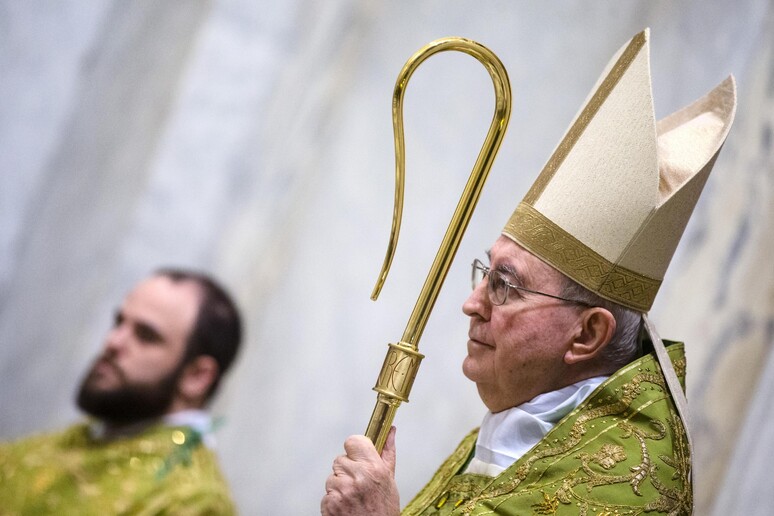(by Giovanna Chirri).
Pope Francis is preparing to close the Jubilee Holy Year of Mercy on Sunday with special celebrations with prisoners and the homeless.
He has repeatedly called for the inclusion of the poor and especially migrants within an economy in which money must "serve, not rule".
The Jubilee Year was meant to officially open on December 8, 2015, 50 years since the end of the Second Vatican Council.
Instead, the pontiff on November 30 last year opened the Holy Door at the cathedral of Bangui in the Central African Republic, in an early start to the Jubilee in Africa - transforming it from a center of violence and poverty into the spiritual heart of the world.
The year-long event has attracted a record number of pilgrims - close to the 25 million registered during the Great Jubilee in 2000 - and led to the appointment of new cardinals with a strong call for pastoral care, the environment and world peripheries.
The extraordinary Jubilee of Mercy has been proclaimed in a year marred by events including conflicts in the Middle East and terrorism, which have killed many and sown fear.
And the Jubilee was not only a time for indulgence, penance and spiritual rebirth but also an occasion for Catholics and the Church to open up to others, to talk with other women and men from other religions.
This aspect was stressed by the pope with a number of fundamentally important gestures, like his visit to the Greek island of Lesbos in August to meet with refugees.
Another key step was the pontiff's visit to Sweden last month as part of the events for the 500th anniversary of the Reformation.
Mercy thus became a common gesture for the Orthodox and Catholic Church in Lesbos amid the refugee crisis and became a cry for Christian unity in Sweden.
Prayer also focused on the ongoing carnage in Aleppo, among other things.
The Latin American pope has dedicated the Jubilee to Mercy - a central theme for Pope John XXIII and Pope Paul VI and an ecumenical issue.
The issue of mercy tormented Martin Luther and the Lutheran and Catholic responses to such a theme have been one of the most important achievements of half a century of dialogue between the two churches.
It is indeed an inter-religious matter as "merciful" is the epithet recognized to God by millions of Jews, Christians and Muslims from all countries worldwide.
It is a deeply human theme, as was clear in the homily on saints in Malmo, Sweden, and on the saints of the Jubilee, first and foremost Mother Teresa, an icon of absolute love for the poor.
Prisoners - for whom the pope has so far requested in vain an act of clemency - the homeless and disadvantaged have crowded the latest Jubilee hearings and been at the center of some of the most meaningful events over the past year.
The pontiff has not written an encyclical on justice but placed the poor at the center of the Catholic Church by bringing the poor to St Peter's and by stressing over and over again that "the flesh of the poor is the flesh of Christ".
This Jubilee has appeared to shake first and foremost the pope's Church from a "spiritual sclerosis", an "indifference" for the fate of others.
The timing seems perfect.
Three years after his election, the pope has called on the church to open up while promoting a structural renewal he has been patiently and tenaciously pursuing.
Whether the Jubilee of Mercy has appealed to humanity in general is a complex issue to determine.
A first positive response has come from developments in the dialogue with Islam, in a détente with the Sunni Muslim theological center of Al Azhar that could perhaps lead in the future to an inter-religious summit for peace, in Egypt, attended by the pope.
But meetings aren't the only things that count in relations with Islam and other Christian churches.
A key issue is the joint determination in stressing together the call for peace of all religions to promote pacification and fraternity.
ALL RIGHTS RESERVED © Copyright ANSA











